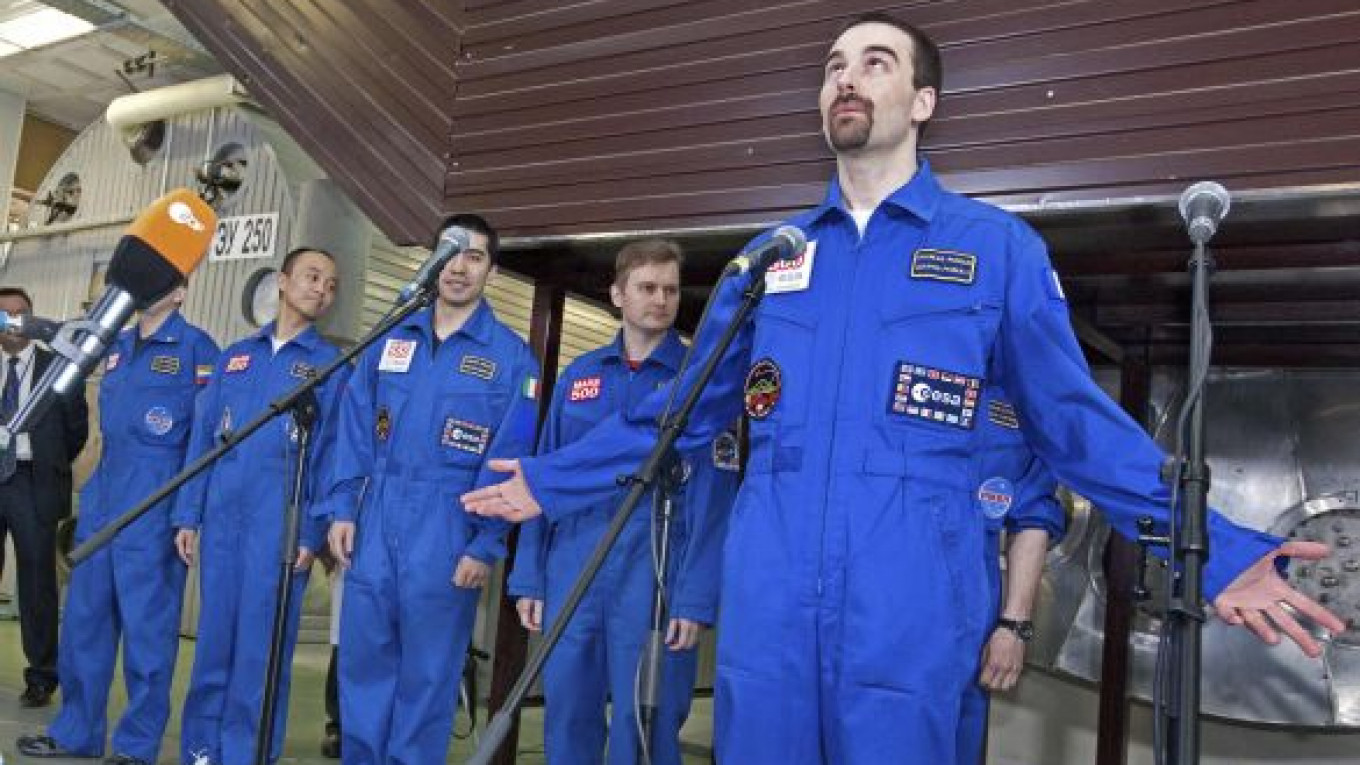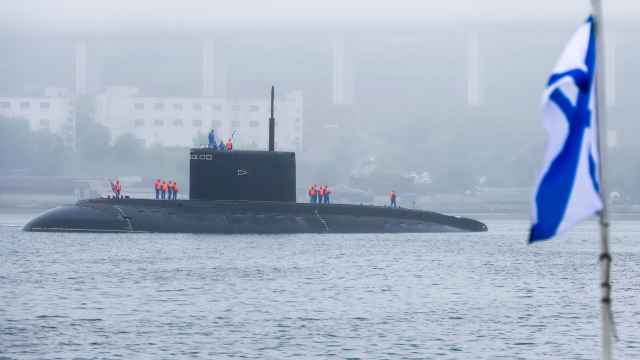Pale-faced but smiling, the crew of a long-duration isolation study emerged bleary-eyed to daylight and applause on Friday after 520 days locked away in windowless, cramped cells to simulate the length of a journey to Mars.
The $15 million Mars500 experiment aims to answer one of the big unknowns of deep-space travel: Can people stay healthy and sane during six months rocketing to the Red Planet?
Here are some facts about the mission as Russia opened the hatch on Friday:
- The isolation experiment simulated a 520-day mission to Mars. Six volunteers were locked away in windowless cells since June 2010. The $15 million Mars500 experiment is the first full-duration simulation of a manned flight to Mars.
During the Mission:
-
After 250 days the crew was divided in half, three sent to a Martian surface simulator, and three stayed in the "spacecraft."
-
Crew lived and worked like astronauts on International Space Station.
- Crew worked a seven-day week with two days off, except when special and emergency situations were simulated.
- Crew were monitored and their psychological, medical and physical signs recorded.
Real Trip to Mars:
- Last month, NASA unveiled $10 billion plans to build a giant deep-space rocket to carry astronauts beyond low-Earth orbit after 2017 for missions to the moon, an asteroid or Mars.
Sources: Reuters/NASA/
The six male volunteers were allowed to briefly embrace family and friends before being ushered into a three-day quarantine period at the end of an experiment to recreate the psychological strain of a real Mars mission as closely as possible.
Clothed in blue jumpsuits, the would-be astronauts from Europe, Russia and China grinned and waved as the heavy metal door was shut on their home of the last 17 months in a mock spaceship at a Moscow research institute.
"It's really, really great to see you all again, rather heartwarming," said Diego Urbina, an Italian-Colombian participant, who was shaky and red-eyed. "On this mission we've achieved the longest isolation ever so that humankind can go to a distant but reachable planet."
Psychologists fear that a return to the noise and activity of ordinary life will come as a shock to the men.
"Time seems to have flown by since we closed the hatch last year. But how time really felt to the crew we'll soon know. Probably we'll have a very big difference of opinion," said Igor Ushakov, head of the Russian Institute for Biomedical Problems, which runs the "spaceship."
The crew was firmly anchored by gravity, despite the pretense of long months shuttling through space. But that did not stop them from feeling thousands of miles from home.
"I really felt a physical distance between our crew and the people in Mission Control. My reason knows that they're just 20 meters away from us, but my mind can't accept it," Frenchman Romain Charles said on the eve of his return.
The men have fed on rations like those of real astronauts, rarely showered, taken daily urine and blood samples all while under 24-hour surveillance everywhere but in the toilets, earning the study comparisons to a reality TV show.
More than 100 different experiments crowded in on the Mars500 project, with researchers of every stripe interested in scrutinizing the men. Halfway through, three crew members even donned 32-kilogram spacesuits to clomp about in a dark, sand-filled room, imitating the surface of Mars.
"They are tired. Of course, they need social rehabilitation to adapt back to society," project director Boris Morukov said. "Over a period of 17 months, everything was strictly regimented. Now they are returning to a life where they must deal with family and professional problems."
A 420-day experiment in 2000 ended in drunken disaster when two participants got into a fistfight and a third tried to forcibly kiss a female crew member.
Mars500, the first fully fledged simulation, brings a warm rush of publicity to space programs, struggling against waning interest among tax payers.
"It's amazing how much interest there has been," veteran European astronaut Christer Fuglesang said.
Space officials say technology is still decades away from being able to protect astronauts from cancer-causing cosmic radiation, land them at least 56 million kilometers across the solar system and bring them home again.
But Charles said flying to Mars is "the next logical step for human expansion." "If any catastrophic threat is targeting the Earth, we should be able to seek a safe haven in another celestial body."
A Message from The Moscow Times:
Dear readers,
We are facing unprecedented challenges. Russia's Prosecutor General's Office has designated The Moscow Times as an "undesirable" organization, criminalizing our work and putting our staff at risk of prosecution. This follows our earlier unjust labeling as a "foreign agent."
These actions are direct attempts to silence independent journalism in Russia. The authorities claim our work "discredits the decisions of the Russian leadership." We see things differently: we strive to provide accurate, unbiased reporting on Russia.
We, the journalists of The Moscow Times, refuse to be silenced. But to continue our work, we need your help.
Your support, no matter how small, makes a world of difference. If you can, please support us monthly starting from just $2. It's quick to set up, and every contribution makes a significant impact.
By supporting The Moscow Times, you're defending open, independent journalism in the face of repression. Thank you for standing with us.
Remind me later.






